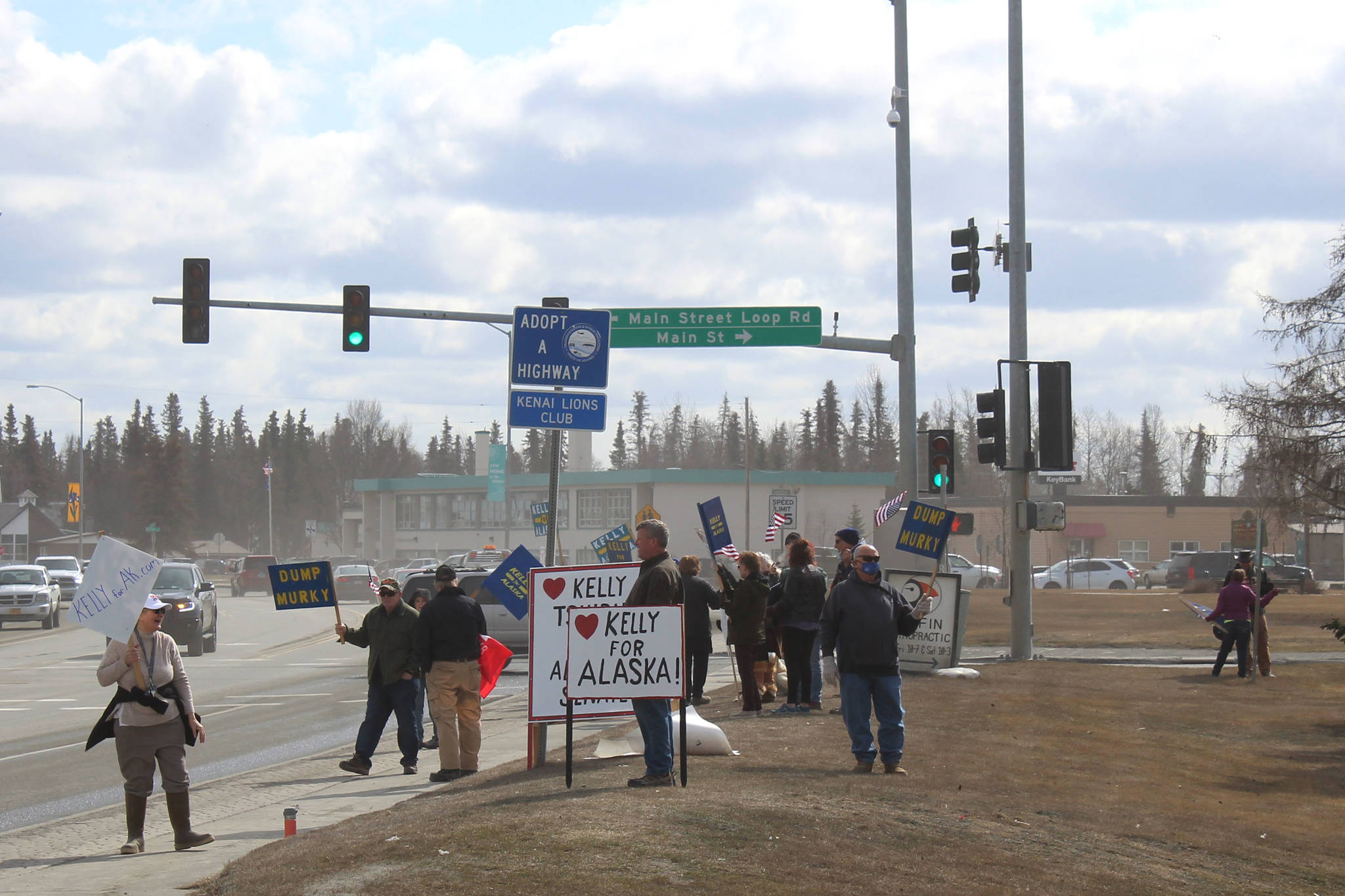During a visit to Kenai on Wednesday, U.S. Sen. Lisa Murkowski commended the Kenai Peninsula for its COVID-19 response and detailed legislation she believes was overlooked during the pandemic.
Speaking at a joint Kenai and Soldotna Chamber of Commerce luncheon at the Kenai Chamber of Commerce and Visitor Center, Murkowski began her remarks by saying how glad she was that she was able to address the chambers in person.
“The opportunity to be here, and to not only see you all outside of your little boxes, but to be able to field questions and sit down and talk about the issues that are important to Alaskans and our families — this is really what it’s all about,” Murkowski said. “I’m just so, so glad that we are getting back to this place.”
Murkowski praised the Kenai Peninsula’s handling of the COVID-19 pandemic and called the borough a leader in pandemic response.
“Here on the peninsula you’ve been leading the state in terms of how you have responded to an economic shutdown,” Murkowski said. “The resources that were made available to so many of our small businesses throughout the communities here on the peninsula — I think this is one of the areas where we have seen some real successes.”
Murkowski said she was invited to speak at the chamber to provide an update on what was going on in Washington, D.C. While addressing COVID-19 has been a congressional priority, Murkowski said, other impactful legislation, such as the Great American Outdoors Act and the Energy Act of 2020, has “kind of got forgotten.”
The Great American Outdoors Act, which was signed into law last year, aims to address deferred maintenance projects on some public lands by establishing the National Parks and Public Land Legacy Restoration Fund. Specifically addressed are the maintenance backlog of the National Park Service, the U.S. Fish and Wildlife Service, the Bureau of Land Management and the Bureau of Indian Education, according to the U.S. Department of the Interior.
Murkowski said Wednesday that multiple pieces of local land stand to be affected by the legislation, including the Russian River Campground and the Devil’s Pass trailhead as well as other areas in Chugach National Forest, some of which will be funded in FY21. An interactive map of projects eligible to be funded via the Great American Outdoors Act can be found on the U.S. Forest Service website at fs.usda.gov.
“It was significant in size and scope and [in] how we address not only deferred maintenance, but how we do a better job going forward so we don’t get behind the ball on that,” Murkowski said. “… It’s legislation that you might not have heard a lot about because people are focused on a lot of other things, but you’re going to be seeing the benefits of that going forward.”
The other is the Energy Act of 2020, which Murkowski said is the first time U.S. energy policies have been updated in 13 years, during which the U.S. has shifted from being a net energy importer to becoming a net energy exporter. The legislation addresses the energy priorities of more than 70 senators, Murkowski said.
Though oil and gas will continue to be a part of Alaska’s energy strategy in the future, she said, Alaska has other resources from which energy can also be drawn.
“We’ve got 33,000 miles of coastline; what are we doing to harness the powers of the tide, of our river energy through marine hydrokinetic, the geothermal potential that we have all over this state?” Murkowski said. “Pioneering in some of these areas where we’ve got the assets — it’s not just the oil and gas, it’s everything else that we have out there.”
Murkowski criticized some of the executive orders signed by President Joe Biden that she said are harmful to producing states like Alaska, and seven of which she said specifically targeted Alaska projects.
“President Biden [came] into office [with a] very unifying speech talking about bipartisanship … but the first signals right out of the gate are not very promising,” Murkowski said.
The senator also said that Alaska’s congressional delegation is working to save some of Alaska’s tourism season by taking both a legislative and an administrative approach to COVID-related restrictions on cruise ship travel to the state.
“We’re not giving up on trying to get some of these cruise ships headed north for at least a portion of the summer,” Murkowski said. “The pressure is on the CDC; the pressure is on the administration; the pressure is on the Canadians and we are working toward the goal of hopefully seeing a commitment to some cruise travel by mid-July.”
On infrastructure, Murkowski said that people can generally agree to support long-term investments in infrastructure, but that Biden’s American Jobs Act is facing pushback because of how broadly “infrastructure” is defined in the bill, which some lawmakers can take advantage of by adding legislation that doesn’t directly relate to infrastructure.
“This is the direction that we’re going which, in my view, is awful from a process perspective, also from a transparency perspective, and also from the taxpayers perspective,” Murkowski said, adding that the money being put toward legislation isn’t free.
Murkowski also announced in closing remarks that one of her longtime peninsula representatives, Michelle Blackwell, has retired. Blackwell first joined Murkowski’s team in 2011.
Reach reporter Ashlyn O’Hara at ashlyn.ohara@peninsulaclarion.com.

